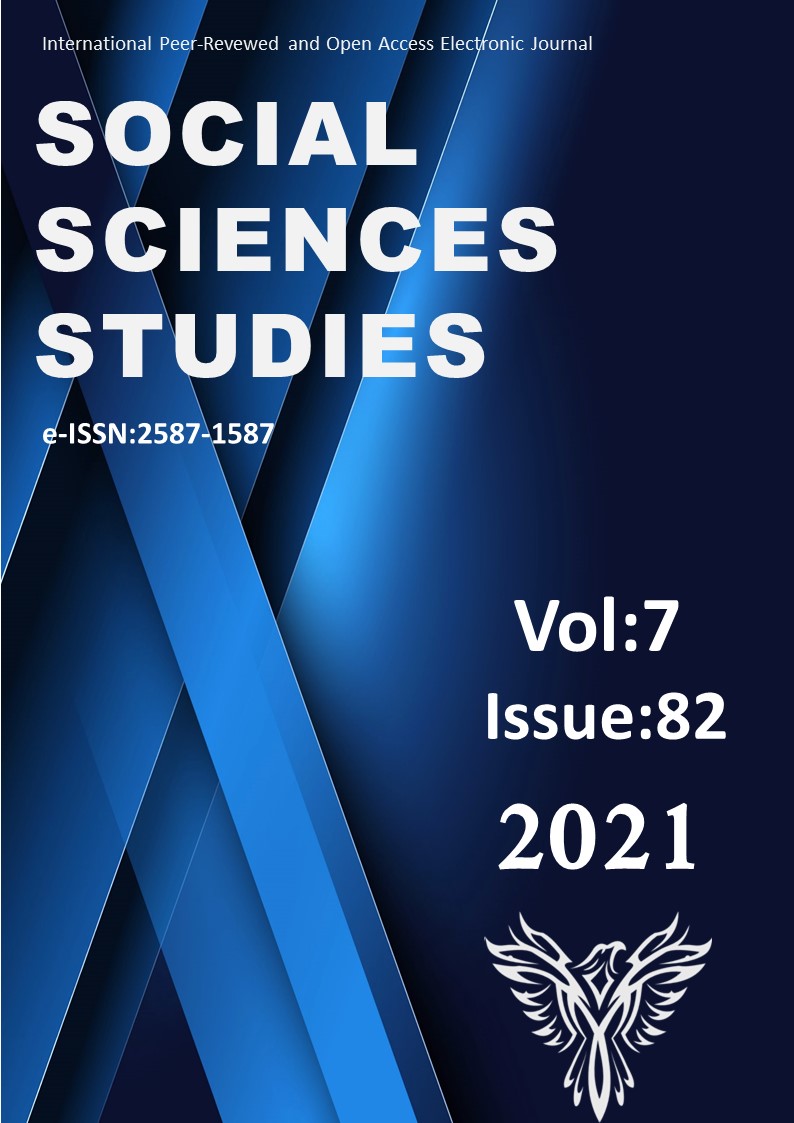Author :
Abstract
Bu araştırmanın amacı; özel okullarda çalışan öğretmenlerin psikolojik sağlamlıklarının ve iş doyumlarının mesleki tükenmişlik düzeylerine etkisini incelemektir. Bu araştırmada veriler, Mardin ilinde özel kurum olarak faaliyet gösteren okullarda çalışan 260 öğretmene anket uygulanıp toplanmıştır. Anket 20 maddelik Minnesota İş Doyum Ölçeği, 22 maddelik Maslach Tükenmişlik Envanteri ve kişisel bilgi formundan oluşmaktadır. Anketlerden elde edilen veriler programa girildikten sonra araştırmanın geçerlilik analizi, doğrulayıcı faktör analizi kullanılarak yapılmıştır. Araştırmada verileri analiz etmek için korelasyon analizi ve regresyon analizi kullanılmıştır. Sonuç olarak, iş doyumunun tükenmişliği negatif olarak etkilediği görülmüştür. Bununla birlikte araştırma sonuçlarına göre iş doyumunun, tükenmişliğin alt boyutlarını da etkilediği görülmektedir. İçsel doyumun artması ile duyarsızlaşma ve kişisel başarıda düşme azalmakta; dışsal doyumun artması ile de duygusal tükenme azalmaktadır.
Keywords
Abstract
The aim of this study is to examine the effects of teachers’ psychological resilience and job satisfaction on their professional burnout levels. In this study, the data were collected by conducting a questionnaire to 260 teachers working in private schools in Mardin Province. The questionnaire consists of a 20-item Minnesota Satisfaction Questionnaire, a 22-item Maslach Burnout Inventory and a personal information form. After the data obtained from the questionnaires had been entered into the program, the validity analysis of the research was performed by using confirmatory factor analysis. In order to analyze the data in the study, correlation analysis and regression analysis were used. As a result, it was seen that job satisfaction affects burnout in a negative way. In the meantime, according to the results of the research, it was seen that job satisfaction also affects the sub-dimensions of burnout. While depersonalization and diminished personal accomplishment decrease with the increase of intrinsic satisfaction, emotional exhaustion decreases with the increase of extrinsic satisfaction.
Keywords
- Gönen Aktaş, T. & Koca Ballı, A.İ. (2021). “Does Teachers’ Job Dıssatısfactıon Cause Burnout?” International Social Sciences
- Studies Journal, (e-ISSN:2587-1587) Vol:7, Issue:82; pp:1988-2001. DOES TEACHERS’ JOB DISSATISFACTION CAUSE BURNOUT? Öğretmenlerin İşte Tatmin Olmaması Tükenmişliğe Neden Olur Mu? Tuba GÖNEN AKTAŞ Adana/TURKEY ORCID ID: https://orcid.org/0000-0001-9541-4780 Dr. Öğr. Üyesi. Ayşe İpek KOCA BALLI Cukurova University, The Faculty of Kozan Business Administration, Adana/TURKEY ORCID ID: https://orcid.org/0000-0001-7808-5807 ÖZET The aim of this study is to examine the effects of teachers’ psychological resilience and job satisfaction on their professional burnout levels. In this study, the data were collected by conducting a questionnaire to 260 teachers working in private schools in Mardin Province. The questionnaire consists of a 20-item Minnesota Satisfaction Questionnaire, a 22-item Maslach Burnout Inventory and a personal information form. After the data obtained from the questionnaires had been entered into the program, the validity analysis of the research was performed by using confirmatory factor analysis. In order to analyze the data in the study, correlation analysis and regression analysis were used. As a result, it was seen that job satisfaction affects burnout in a negative way. In the meantime, according to the results of the research, it was seen that job satisfaction also affects the sub-dimensions of burnout. While depersonalization and diminished personal accomplishment decrease with the increase of intrinsic satisfaction, emotional exhaustion decreases with the increase of extrinsic satisfaction. Key Words: Job Satisfaction, Burnout, Teacher ABSTRACT





